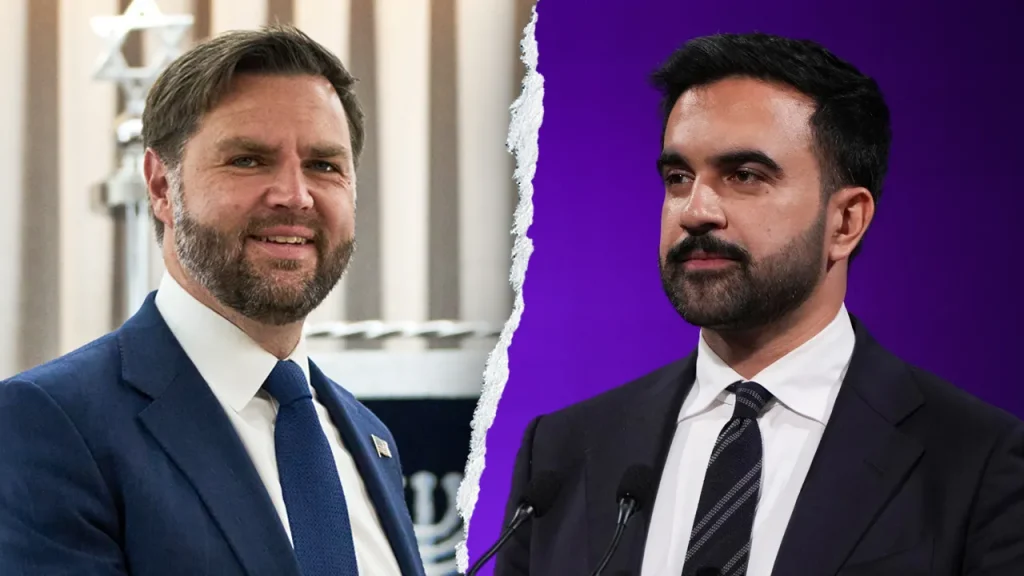Controversy Erupts as Election Tensions Rise in New York City
In the midst of early voting in New York City, a heated exchange between Vice President JD Vance and mayoral candidate Zohran Mamdani has ignited controversy over sensitive remarks regarding 9/11. The dispute began when Vance criticized Mamdani for comments made during a campaign event, in which the Democratic frontrunner spoke about his aunt who “stopped taking the subway after September 11th because she did not feel safe in her hijab.” Vance’s response on social media was swift and cutting, suggesting that Mamdani was portraying his aunt as “the real victim of 9/11” for receiving “some (allegedly) bad looks.” This exchange highlights the increasingly tense political climate as New York voters head to the polls in what has become a contentious mayoral race.
Mamdani’s original remarks extended beyond his personal family experience, speaking to a broader constituency of Muslim New Yorkers. During the campaign event, he addressed “the Muslim who works for our city, whether they teach in our schools or walk the beat for the NYPD,” describing them as “New Yorkers who all make daily sacrifices for the city they call home, only to see their leaders spit in their face.” He further reflected on growing up “in the shadow of 9/11,” describing the experience of being “marked as the other” and living “with an undercurrent of suspicion” in the city. These comments seem intended to resonate with minority communities who have felt marginalized in post-9/11 America, a significant voting bloc in New York City’s diverse political landscape.
The controversy deepened when former New York Governor Andrew Cuomo, also a candidate in the mayoral race, made comments that Mamdani characterized as “Islamophobic.” During a radio appearance on WABC’s “Sid & Friends in the Morning,” Cuomo questioned Mamdani’s ability to lead during a crisis, asking listeners to imagine if “there’s another 9/11” with “Mamdani in the seat.” When host Sid Rosenberg suggested that Mamdani “would be cheering,” Cuomo responded with “That’s another problem,” before returning to his hypothetical scenario. These remarks drew immediate backlash, with Mamdani later calling them “not only Islamophobic, not only racist, it’s also disgusting.” The exchange represents a significant escalation in campaign rhetoric as the election draws closer.
The timing of this controversy is particularly significant as early voting has begun in New York City, where Mamdani is attempting to maintain his frontrunner status against challengers including Cuomo and Curtis Sliwa. The heated exchanges come at a critical moment when voters are making their final decisions, potentially influencing the outcome of a race with significant implications for America’s largest city. The dispute touches on deeply personal and painful historical memories while raising questions about identity, representation, and the boundaries of acceptable political discourse in a diverse metropolis still shaped by the aftermath of 9/11.
This controversy reflects broader tensions in American politics regarding discussions of 9/11 and its aftermath, particularly the experiences of Muslim Americans and other minority communities in the years following the attacks. Mamdani’s comments about his aunt and others who felt targeted because of their faith or appearance represent a perspective that has often been marginalized in mainstream political discourse. At the same time, Vance’s criticism suggests a view, shared by many conservatives, that such narratives may minimize the primary victims of the terrorist attacks themselves. These differing perspectives on a defining national trauma continue to shape political divides more than two decades after the events of September 11, 2001.
As New Yorkers cast their ballots, this controversy underscores the high stakes and emotional weight of the current mayoral race. The exchange between Vance, Mamdani, and Cuomo goes beyond typical campaign rhetoric to touch on deeply personal experiences and collective trauma that still resonates throughout the city. How voters respond to these charged comments may ultimately depend on their own lived experiences, political affiliations, and views on what constitutes appropriate discourse around sensitive national memories. What remains clear is that as this election unfolds, the legacy of 9/11 and its impact on various communities within New York continues to be a powerful and divisive force in the city’s political landscape, revealing ongoing tensions about identity, belonging, and how we remember our shared but differently experienced history.













